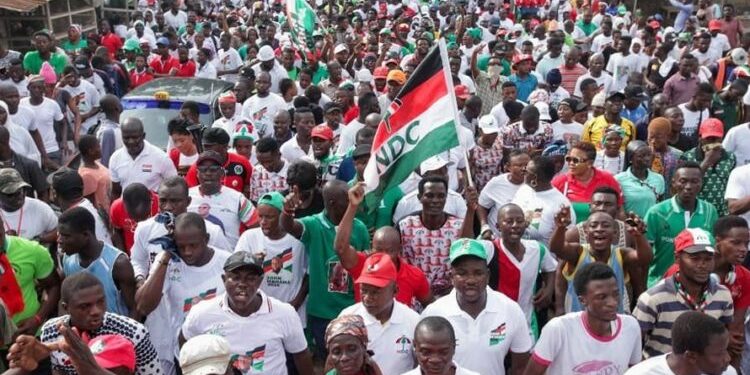The latest parliamentary forecast by Global InfoAnalytics projects a resounding victory for the National Democratic Congress (NDC) in Ghana’s upcoming parliamentary elections, with the opposition party anticipated to secure 151 seats compared to the ruling New Patriotic Party’s (NPP) 99 seats.
Independent candidates are expected to claim 2 seats, with 24 seats still deemed too close to call. This predicted shift reflects a growing public discontent with the NPP’s governance, particularly over the handling of the economy, issues surrounding transparency, and unfulfilled promises that have eroded public trust.
The NDC’s platform, which includes a bold “24-Hour Economy” plan aimed at job creation and local business support, is resonating strongly with voters. The plan seeks to establish a robust job market while revitalizing local businesses through enhanced economic activity.
Furthermore, the NDC has promised to improve the existing Free Senior High School (SHS) program by ensuring it remains accessible, high-quality, and truly free. This proposal contrasts with the NPP’s previous educational policies, as the cost of living rises and employment opportunities remain scarce, a situation that has led to widespread voter frustration and a renewed appetite for comprehensive reform.
For many Ghanaians, the forecast underscores what they see as a pivotal moment for real change. The NPP’s continued focus on Free SHS, once a decisive vote-winner, has reportedly lost its appeal amid rising living costs, job scarcity, and concerns over government accountability.
Voters appear to be gravitating toward the NDC’s promises of economic renewal, job creation, and a greater focus on transparency, seeing these as crucial to lifting the country out of economic hardship.
This momentum has sparked a sense of inevitability among NDC supporters, who believe the forecast signals a transformative era in Ghanaian politics.
The focus now shifts to the 24 critical “toss-up” seats, which could solidify an NDC majority if the party’s appeal continues to grow. This election could indeed mark a new political chapter, driven by a population calling for transparency, economic opportunities, and sustainable progress for all Ghanaians.

